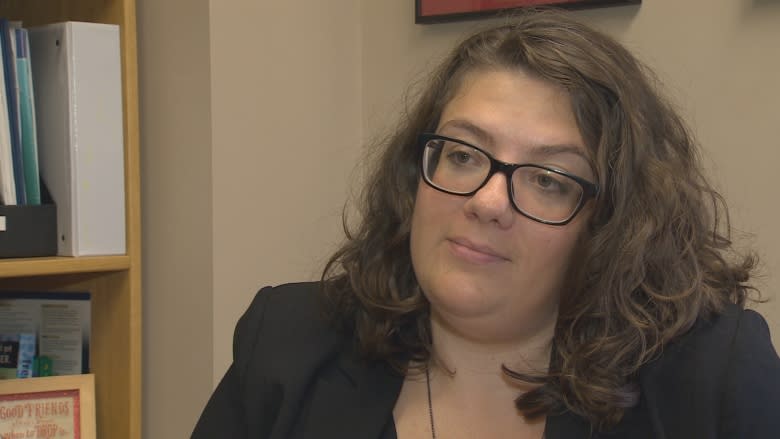Women's council calls for new approach to sexual assault reviews
The New Brunswick Women's Council is calling on police forces to take a different approach to its reviews into "unfounded" sexual assault cases.
Executive director Beth Lyons was hoping the reviews would dig deep into how police investigate sexual violence.
She also wanted to see training in trauma for police and people who work in the justice system, with advocates involved every step of the way.
"Instead, what we've seen is a bit of a back and forth over who is responsible for the reviews that are happening," Lyons said.
Earlier this week, Saint John police Chief John Bates said his force had completed its review, after looking at 366 "unfounded" sexual assault cases.
But the police force doesn't plan to change the way it investigates sexual violence, despite sporting the highest "unfounded" rate in the country, at 51 per cent.
Instead, the review found the police force's high "unfounded" rate was caused by officers not understanding when to use the "unfounded" code.
"When women see institutions being criticized by hard data and their first response is to say, 'Well, it actually isn't as bad as it looks, it's actually just an administration coding error,' it feels dismissive of women's concerns," Lyons said.
Review calls for more training, audits
The Saint John Police Force provided CBC News with a copy of its full review on Monday.
Written by Sgt. Debbie Easton, it calls for more training and regular internal audits to make sure investigators are closing files with the right codes.
Easton followed a checklist provided by the Department of Justice and Public Safety.
That checklist asks questions about how often victims are kept up to date, whether investigators had specialized training to deal with sexual assaults and whether the case ever went to court.
The Saint John report disagrees with a key finding of the Globe & Mail investigation — that a police force's unfounded rate is an indication of whether police will believe a victim.
After the review, the Saint John force said its unfounded rate was 17 per cent between 2010 and 2016.
'Doesn't build any more confidence'
Bates has said his force doesn't plan to ask advocates to get involved and review sexual violence cases, saying there isn't a need.
So far, only the Fredericton Police Force has asked advocates from the Fredericton Sexual Assault Centre to come in and look at its files, choosing to follow something called the Philadelphia Model.
According to Lyons, advocates need to be involved because they add credibility and have specialized knowledge about what victims face.
"When there are criticisms of institutions made, and then those institutions decide to deal with them behind closed doors, to not bring in advocates or not be particularly clear with the public around what their processes are, that doesn't build any more confidence," she said.
Lyons is also calling for police forces to change the way they respond to criticism about how they handle investigations into sexual violence.
Police may feel under attack, she said, but need to "check their impulse" to be defensive.
"We would like to see them approach the question of how sexual violence is handled by law enforcement and by the justice system from a place of really wanting to do better, rather than just explaining or defending the challenges and the barriers that folks face."
Each police force in the province is reviewing its "unfounded" cases.
They'll submit the results to the Department of Justice and Public Safety. Spokeswoman Elaine Bell has said the results will be shared with the New Brunswick Police Commission and people who work with survivors of sexual assault, before deciding what to do next.



